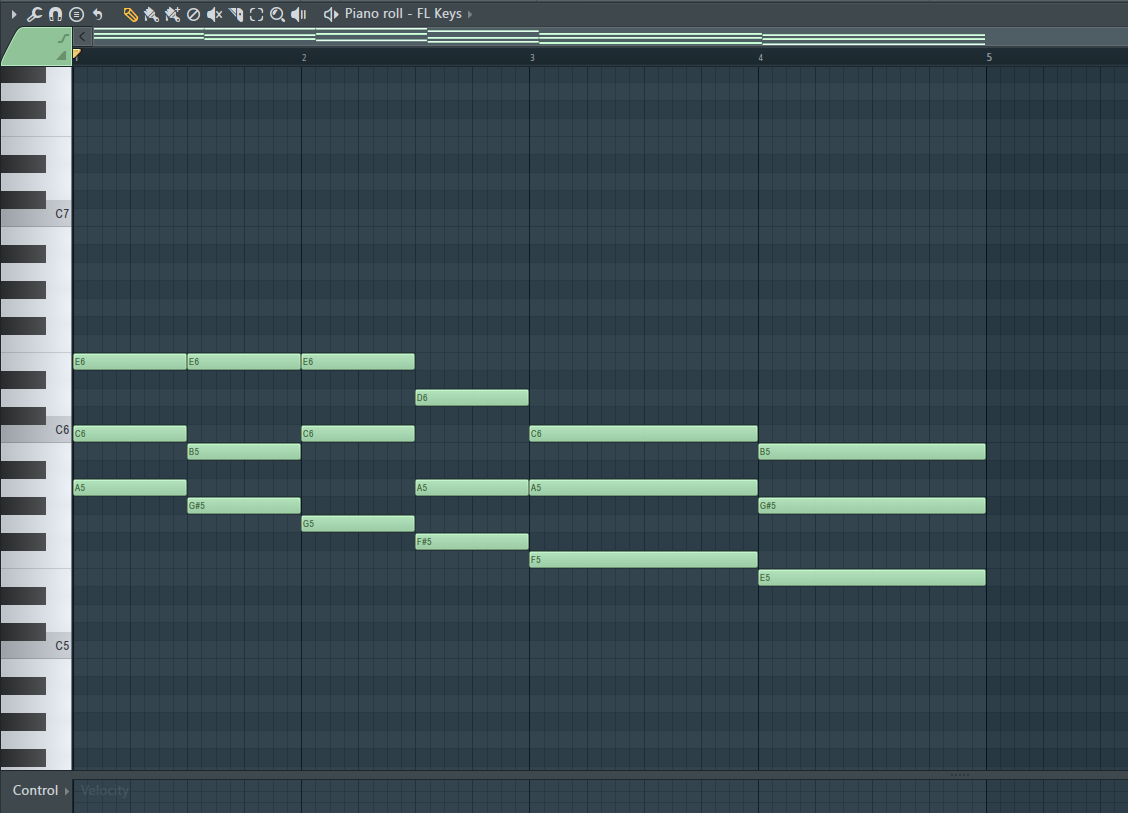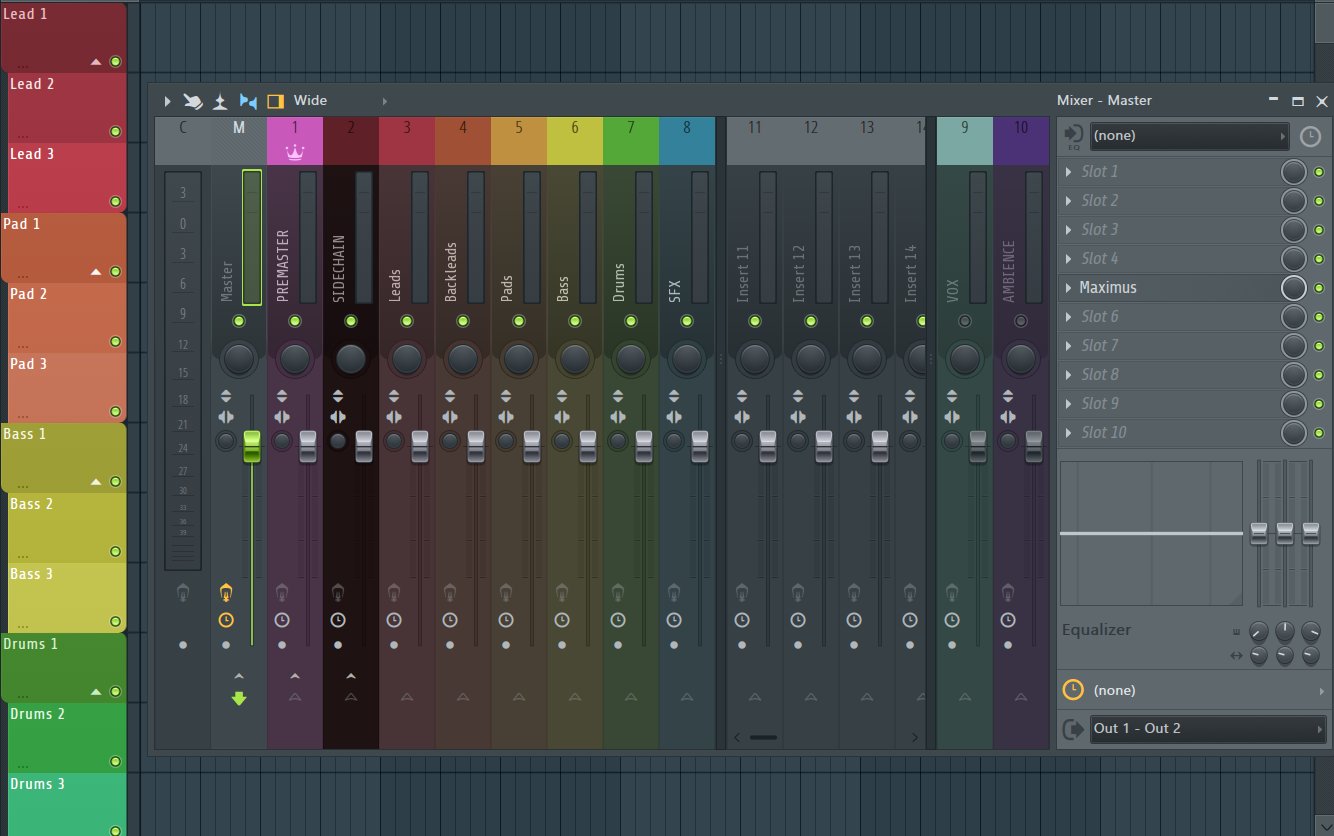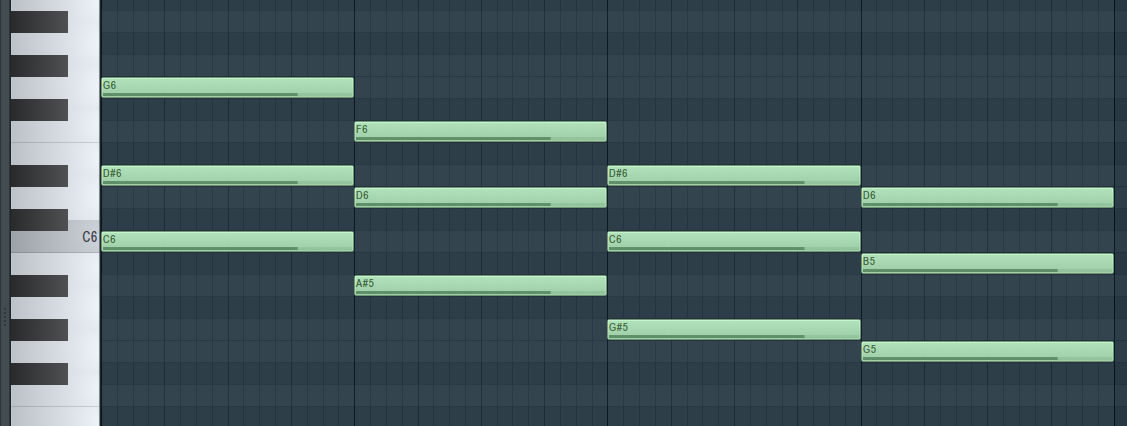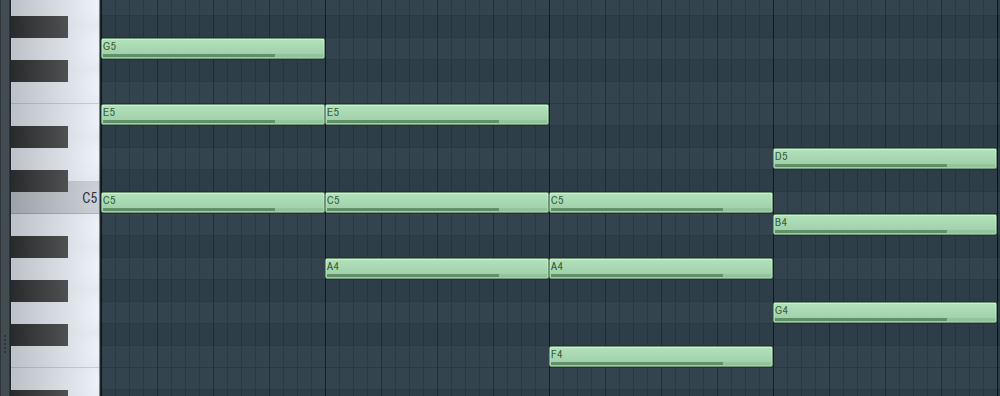- You're only using one chord progression
It doesn't have to be the specific one in this image, of course, but in general try to avoid just looping one progression. Establish progressions that complement each other, or are variations on each other
- Chord Rhythms
Always use your ears of course, but an easy way to spice up a progression is to change the rhythm. Chords don't have to change just on every measure, (as an example) try making a chord hit an 8th note earlier for some syncopation. - Drum Rhythms
It's not just about making ONE interesting drum rhythm that plays throughout the whole, it's about making the drums in their totality interesting. Think about it like an actual drummer is playing it, would they repeat the same groove all song? - Melodies
Similar to chord rhythm, try making your melodies hold notes over the bar line, or the opposite (have notes hitting early). Melodically accent the chord tones, but be sure to also use tension notes that are a half step away from chord tones. Also use vibrato - Ear Candy
Add little melodic flourishes, drum hits, ambiances, sound effects, and other small things like these to your track and I guarantee: It'll sound more alive than ever. - Motifs
Establish a motif in your song but do not OVERUSE said motif, especially if your song is short. This motif is likely to be associated with the chorus, so play it there (and perhaps the outro, for a suggestion).
Making the outro built from the intro works well too btw - Instrumentation
Don't re-use the same synths/ drums/ etc for every song. I'd also advise against using instruments that are already overused by other people (though of course, this is context dependent) - Mixing
Seriously, take the time to watch some videos on youtube on mixing basics. While mixing is a difficult skill to perfect, it's not at all hard to start. Even a little bit of knowledge will take a mix from bad to at least decent. - Organize!
Organize your project files by using a project template. This is different for every DAW I imagine, but regardless, having a template with mixer buses and instrument tracks labeled like below does wonders. Tune your template to fit your needs
- What's done is done
Don't overly focus on updating/ remastering older works. Instead, take what you learned from your past mistakes and use that to make newer, better music. I'm not saying NEVER remaster, but just don't fall down the rabbit hole of doing it too much - Understand theory
Music theory, in its totality, sometimes gets a lot of shit. But understanding what you're making (especially when talking about harmony) does leagues for your ability to learn and grow as a musician. Remember: You learn the rules before you break them too! - Chord progressions pt.2
Some chord progressions are done to death. Once you learn to spot them you can never Un-spot them. Here's one of em. While not a dealbreaker of course (you CAN use this) I advise against it, for common chord progressions can make a song sound generic.
- You're locking yourself into just one key
While having a coherent tonal center is important, don't be afraid to use the modes of your current scale (look up what the modes are if you dont understand) or do a key change. - Vary your production
Do more than one genre! Way too many people I know just end up making the same song or same genre over and over again. Experiment with different genres and step outside your comfort zone. - Imagery
Try to imagine SOMETHING when composing your track. It can be a character, an emotion, a setting, a message, whatever really. Build your song around this thing you've imagined; try your best to convey it - TIME SIGNATURES OTHER THAN 4/4 EXIST. USE THEM.
Whether for a full song in, say, 5/4, or changing the time sig during the song it's a great tool to inject some intrigue. See Hypothermia from The Elemental EP for an example of changing time signatures




